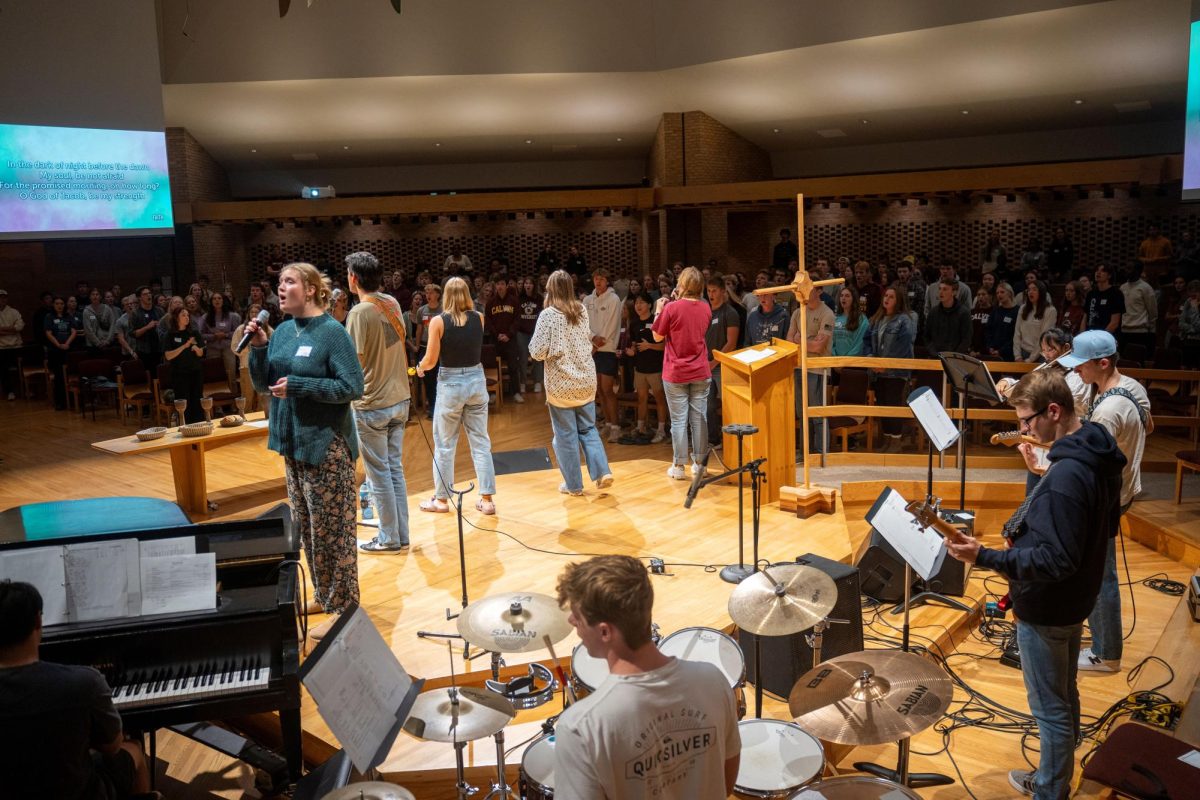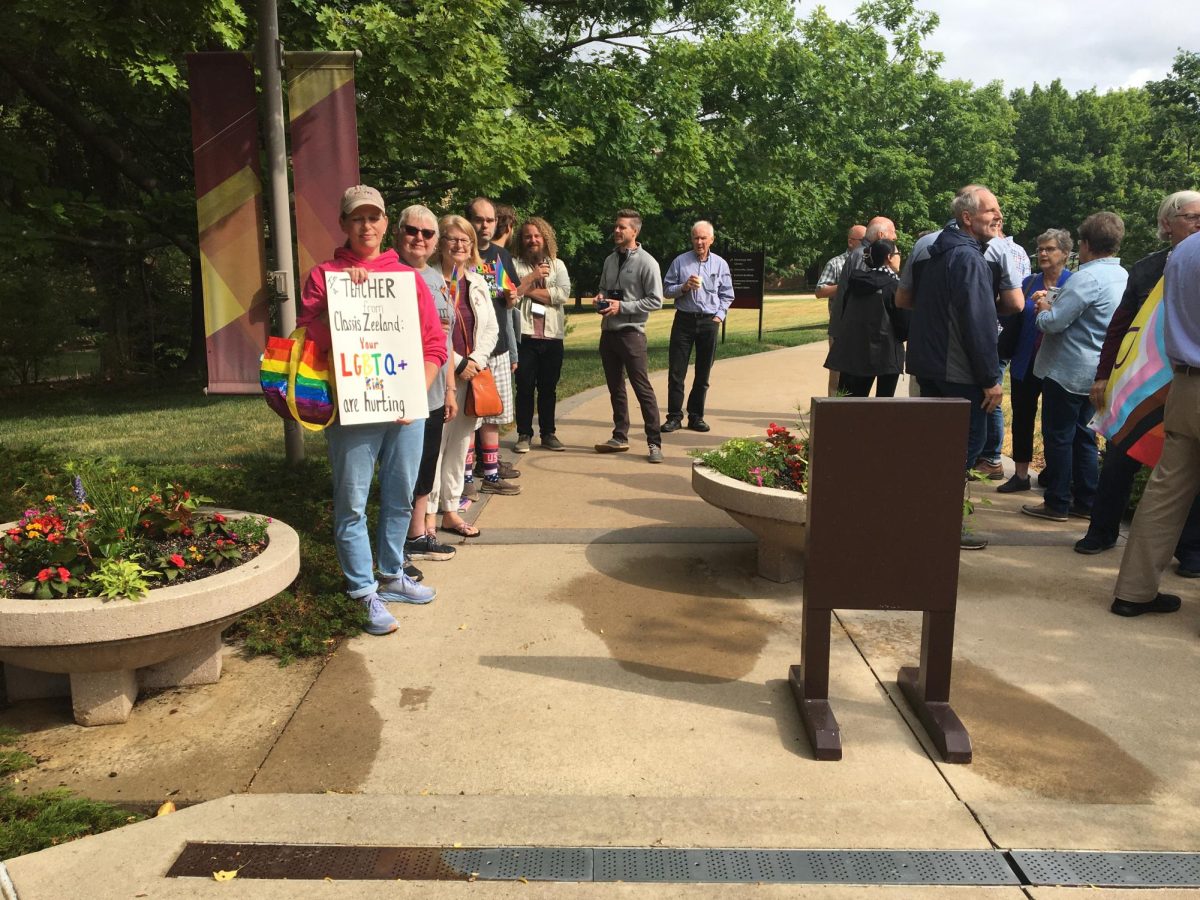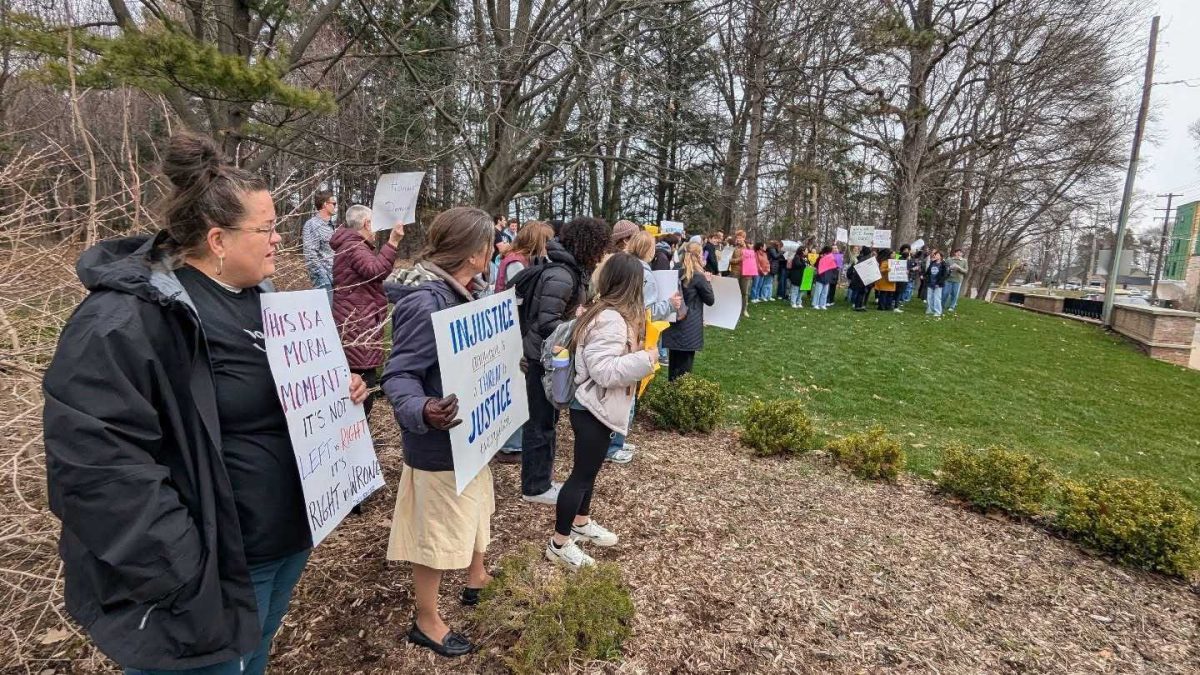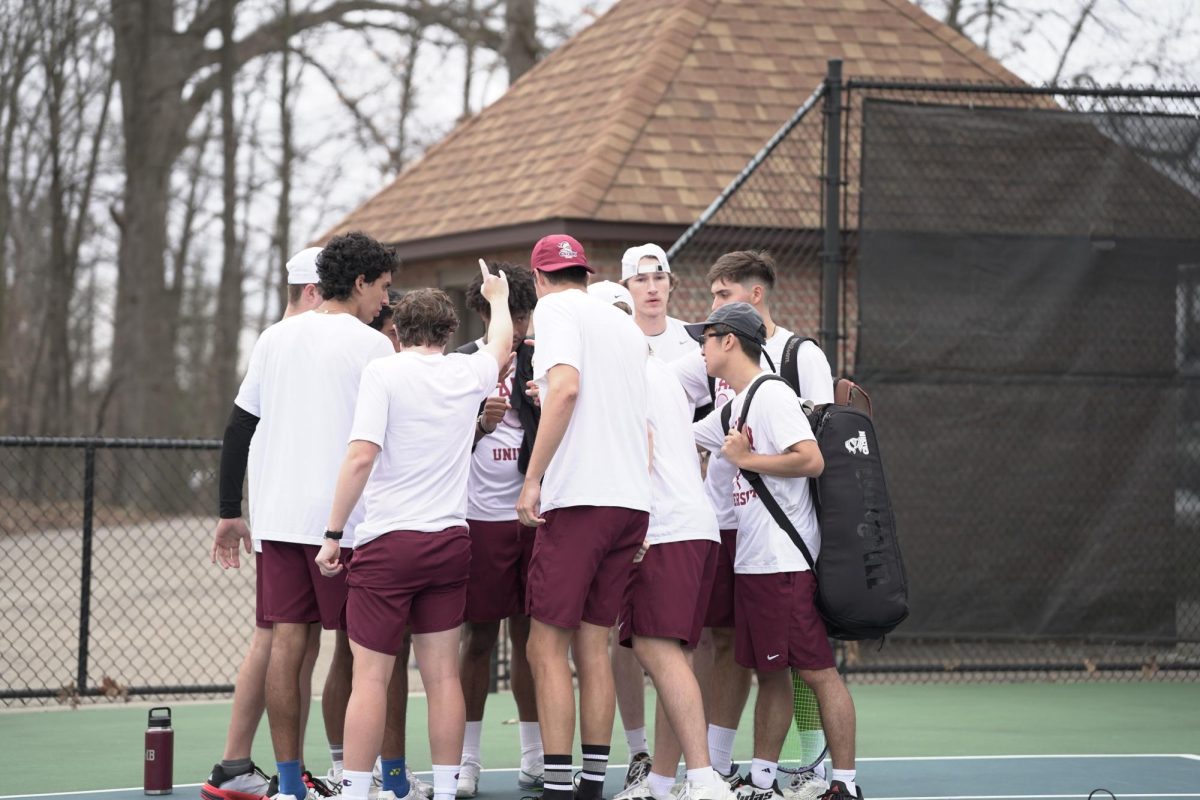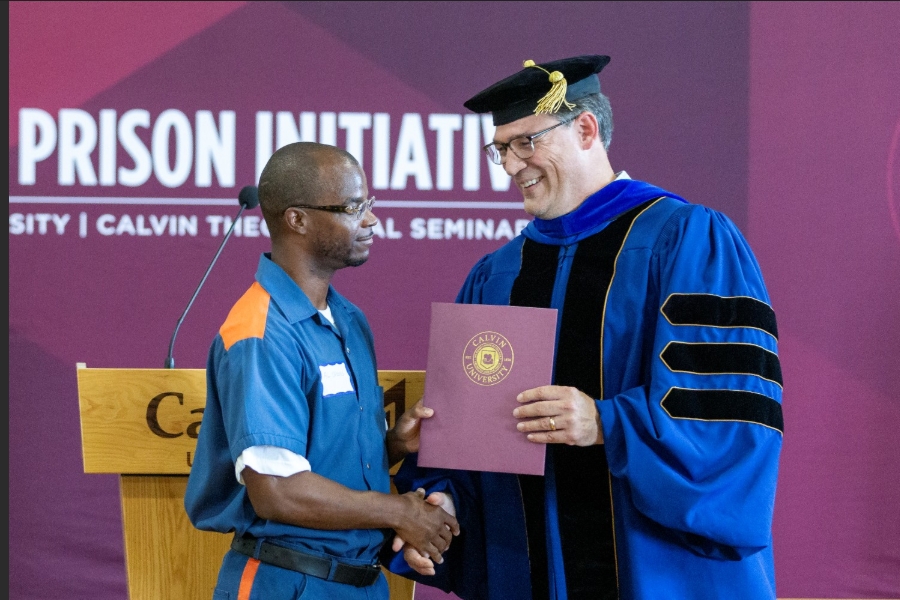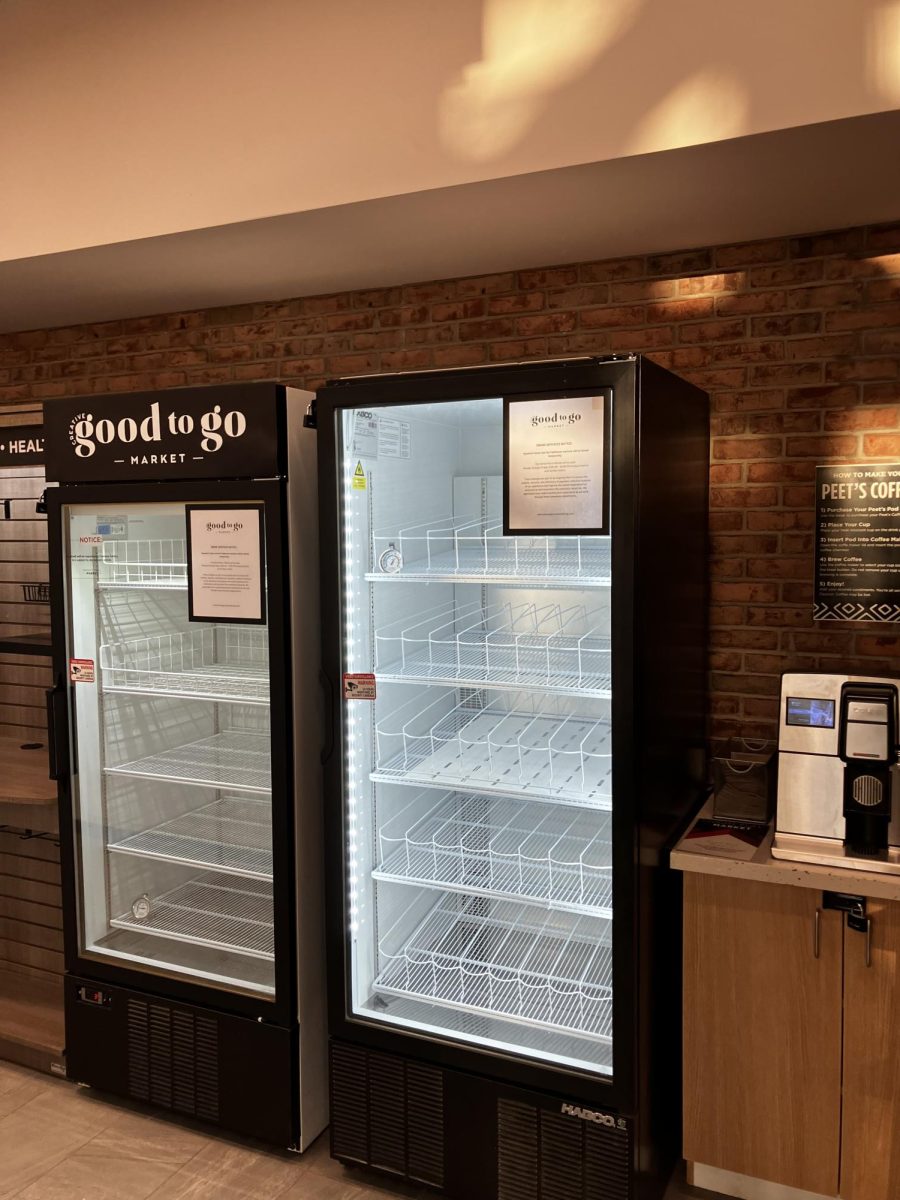In the mid-1990s, Calvin welcomed a Sunday evening worship service to campus in addition to daily chapels. The service was known as “Living Our Faith Together,” abbreviated as “LOFT.” According to Ron Rienstra, who was hired as worship assistant to help manage LOFT, the service quickly grew from just a few people into a staple of weekly worship at Calvin. Approximately 30 years later, it is still going strong at Calvin.
Early beginnings
LOFT was founded by Gregg DeMey and Greg Kett, two students at Calvin Seminary, with the goal of creating a high-quality, contemporary-style worship service that was able to meet the spiritual wants and needs of younger persons. While the service originally met off-campus at LaGrave CRC, Dale Cooper (Calvin’s chaplain at the time) invited the leaders to meet in Calvin’s chapel, with the goal of providing a Sunday evening worship service for students who may not have had the ability to attend an off-campus service on Sunday night. However, the service rapidly grew, and according to Rienstra (now Professor of Preaching and Worship at Western Theological Seminary), it was soon “the thing to do on Sunday nights.”
According to Paul Ryan, worship pastor at Calvin, the service emphasized music, with seven or eight songs per service. Each service also contained a sermon, often from a local pastor, but the music was the centerpiece. According to Rienstra, the service typically followed a structure typical of evangelical worship to this day, with several songs leading into the sermon and a couple after the preaching. The leaders’ dedication to musicianship, liturgical flow and openness to the presence of the Holy Spirit quickly caught on. According to Ryan, LOFT “was a true convergence of the classic pattern of Christian worship, Reformed preaching, Evangelical creativity and Gospel relevance, and charismatic enthusiasm and flow.”
According to Rienstra, both Cooper and Campus Ministries loved the energy students had for the service and decided to “really embrace” the model, a choice which Rienstra called “very brave.” Given the passion that students and staff had for LOFT, it soon became clear that it would remain around Calvin longer than the founders would be able to, with DeMey and Kett moving into full-time ministry elsewhere. The decision to continue the service after DeMey and Kett’s departure prompted the hiring of Rienstra at Calvin to help continue LOFT.
Into the new millennium
Rienstra, who began work at Calvin in 1998, described his initial role as “provid[ing] theological guidance and administrative support” to the musicians who had taken over the week-to-week LOFT planning from DeMey and Kett. In doing so, he also attempted to provide “a little more order to the flow of the service musically and liturgically,” and to give planners some background in Reformed theology and worship structures.
According to Rienstra, this educational aspect was born out of the fact that often, musicians would step straight from LOFT leadership to musical ministry at area churches, despite having little actual educational background in worship planning or theology. This piece of Rienstra’s role eventually was shaped into the still-running Worship Apprentice program at Calvin, which still retains most of the same goals Rienstra had for it at its beginnings.
Around this time, Rienstra decided to pursue a Ph.D. with the goal of transitioning towards a vocation in teaching and, in so doing, stepped away from Calvin. To fill the leadership gap Rienstra left, Calvin hired Ryan to continue to shepherd the Worship Apprentice program and direct chapel and LOFT on campus, a position and responsibilities he holds to this day.
Changing cultural tides
Ryan has seen LOFT through a number of changes over his tenure at Calvin. According to Ryan, the first major shift came in 2009, with the hiring of Reverend Mary Hulst to replace the retiring Reverend Cooper. Ryan said that Hulst was willing to fill the preaching slot every Sunday that had previously been filled by a rotating group consisting of Cooper, Ryan and various community pastors, adding that Hulst’s presence was welcome. Over time, the structure continued to shift, with LOFT becoming more formalized, adding slots for things like sermon series, pastoral prayer and offering, with fewer songs being able to be accommodated.
These changes coincided with shifts in the broader culture that posed problems for Sunday evening services like LOFT. According to Ryan, fewer students came from backgrounds where Sunday evening worship was expected. Furthermore, many area churches had begun incorporating “well-led contemporary songs” into their services, leading to “less of a need to find this at Calvin.”
Around this time, Friday became a major day for admissions, and “we upped our game musically” for Friday chapels, said Ryan. As a result, Friday chapels soon became more popular than Sunday evening LOFT, with attendance numbers at LOFT dropping as low as 150 students per service (compared to the 400 to 500 that would previously have been in attendance). The final nail in the coffin for this iteration of LOFT was the COVID-19 pandemic, during which no LOFT services were held.
Post-pandemic, the idea of a Sunday evening service was once again floated, with a once-a-month service being attempted under the name All-Campus Worship. However, according to Ryan, attendance still struggled, so the decision was made to move the service to alternating Wednesday nights. With this change came the return of the LOFT name, though the structure of the service has again undergone a significant change.
LOFT today
“Today, LOFT is really an extended chapel service,” noted Ryan. The structure of the service today is a response to “student desire to have an extended service of singing with Scripture and prayer” — and notably, preaching is rare. Ryan and the Worship Apprentices (WAs) plan each LOFT with a specific theme, activity or liturgical action in mind, working with the extended timeframe of LOFT to enable “more singing and other creative responses.”
According to Worship Apprentice Anya Hopek, “The vision is to use the longer stretch of time to really dig into various ideals and topics in the Christian faith.” Fellow Worship Apprentice Mia Golden agreed, saying that LOFT gives the WAs “a way to explore avenues of worship that we aren’t able to during a Friday chapel.”
Hopek and Ryan also emphasized the importance of the Wednesday evening timing of the service. Hopek stated that the goal of the team is to “create a space … where people can be encouraged in the middle of the week,” adding that the evening atmosphere creates a calmer, quieter environment more conducive to certain aspects of worship. Ryan agreed, saying that LOFT provides “a [worship] opportunity in the middle of the week without the pressure of classes.” Golden said that the posture at LOFT is usually “very authentic … it’s a lot of people who very much want to worship.”
Despite all the changes over the last several years, Ryan is optimistic about the future of worship at Calvin. According to Ryan, LOFT provides student leaders and worshippers with “autonomy, belonging and a chance to grow.” While the structure of LOFT may continue to change over the next three decades, Ryan believes that “student-led worship will always be attractive.”




